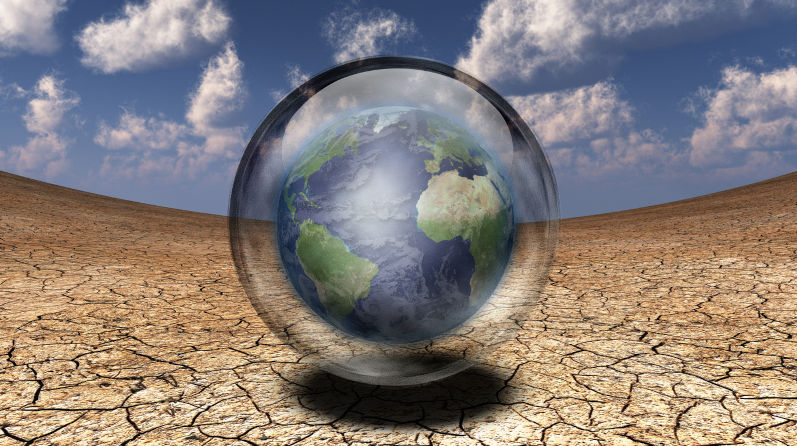Two weeks ago, I was at a public event in Northern NSW listening to five speakers reflect on the state of the climate and what we might do about it – that, at least, was how it was pitched.
As the evening wore on, the discussion slowly but surely morphed into what is the well-versed default of the environmental justice movement: the insistent belief that if ‘we’ act right now, if we can shut down the fossil fuel industry, if we can put enough pressure on the government, industry etc – if, if, if – then we might just prevent the very worst (which assumes of course, that the worst is already here).
Over the course of two hours, the tone became more and more urgent. Voices were breaking, panellists beseeched the audience to get involved, to do something, anything, before it’s too late. Tense and expectant throughout, the event exhibited all the signs of a hope-filled introspection that gave expression to some of the participants’ darkest feelings. Hope was offered up as a kind of psychological shield against the unbearable thought that all was lost. It was never said, but I could sense the adamant prognosis that, without hope, we have nothing. I was, in effect, witnessing a complex spiritual and emotional entanglement with unexpressed grief and loss.
The keynote speaker, a leading and highly respected IPCC scientist, spoke with great eloquence and clarity about the state of the climate. A collection of carefully curated graphs and charts supported the contention that we’re in deep trouble. Despite this gloomy outlook, however, we were informed that it’s not too late; that there’s hope. The most pressing task was to end the extraction of fossil fuels and to replace them with renewable energy.
Another speaker highlighted the criminal responsibility of polluting companies, many of whom have long known what the extraction of coal, gas and oil is doing to the planet. These companies have, he argued, covered up the evidence, lied, denied, manipulated and carried on regardless, all in pursuit of super profits.
Other speakers peddled the same line, with a legal advocate describing how she and her colleagues were taking the litigation fight to the polluters and their enablers, forcing them to account for their actions. Yet another panellist, a well-known local federal Greens candidate, spoke with great urgency about the need to fill the cross benches with pro-climate activists who would, she promised, put the fuel industry to bed.
As the evening progressed, I became increasingly uneasy with the emphasis on hope. It felt odd because everyone on the stage was acutely aware that the global environmental justice movement has been battling governments and fossil fuel companies for decades, and still emissions are rising, new fossil fuel licenses are being issued, and despite its ‘green’ credentials, Australia continues to export lots of coal and gas, and the US is now the world’s leading petrostate. Under Trump, most if not all environmental regulations will be removed. Investments will no doubt continue to trend away from some fossil fuels, but the so-called ‘transition’ to a clean energy economy will likely slow down. Western and ‘developing’ countries will remain heavily reliant on dirty energy.
The idea that the world is actually ‘transitioning’ to ‘clean energy’ was left largely unchallenged by panellists, conveniently side-stepping the fact that the industrial processes involved in generating renewables rely heavily on huge amounts of fossil fuels that continue to feed a system of massive over consumption and resource overshoot.
It is industrial modernism that has ushered climate breakdown and biodiversity loss, problems so colossal, so out of control, that turning things around in the time frame required is nigh imposable. We’re not on a “highway to hell”, as the UN Secretary General, António Guterres said, we’re in that hell – right now. It’s the hell of climate catastrophe, the destruction of ecosystems, failing economies, political polarisation and social fragmentation.
The situation is grim, oh yes. We’re unlikely to get out of this mess, at least not in the way hope-peddlers are proposing. None of this means giving up on activism. We do so for good moral and ethical reasons and not always with the expectation of achieving our preferred ends.
As the ‘emergency’ or ‘crisis’ ramps up, so will the opposition, division and anger. If we do not gaze into the abyss and recognise that there is very little prospect of preventing the ‘very worst’ (which remains unknown in its full ramifications); if we do not fully acknowledge the full implications of what multiplier effects, feedback loops and so forth are doing to our biosphere and ecosystems, then we’re in even more trouble than we thought.
As activists however, our conversations need to be more expansive to include the urgent need for physical and emotional adaptation. We urgently require plans that offer effective support and mutual aid for at-risk and impacted communities. We need to build a stronger civic society and develop forms of community resilience that might enable us to live on a hothouse earth. Australia is one of many countries that has no national plan for adaptation. Nor are we anywhere near fully comprehending the extent to which the climate catastrophe is going to impact our lives. To respond meaningfully, we’ll need a complete revolution economic, social and political priorities. We’ll also need a complete transformation of human consciousness – an entirely different way of existing. And we’ll need to recognise and respond to our collective grief and loss.
We cannot remain locked inside an illusion.
Adjunct Professor, School of Health Sciences and Social Work,
Griffith University (Gold Coast Campus).
Adjunct Professor, Southern Cross University, Faculty of Business, Law and Arts.

